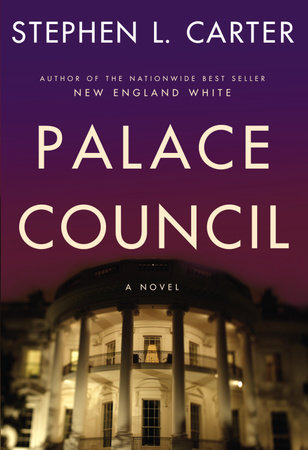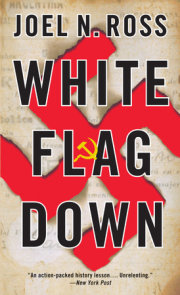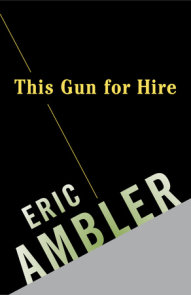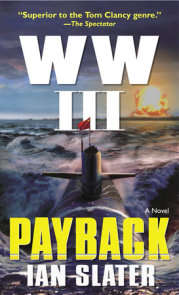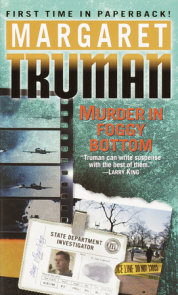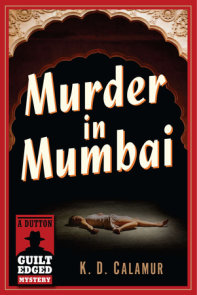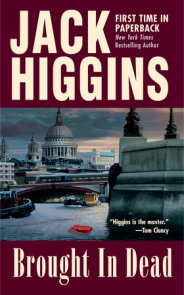READERS GUIDE
"Pitch-perfect. . . . A mystery that will give a surprising jolt to your conscience."—The Washington Post
The introduction, questions, and suggestions for further reading that follow are designed to enhance your group’s discussion of Palace Council by Stephen L. Carter, the bestselling author of The Emperor of Ocean Park and New England White. Carter captures the turbulent era of the Civil Rights Movement, the Vietnam War, and the Watergate scandal in a gripping political thriller. With masterful skill, he interweaves a cast of intriguing fictional characters, historic events, and real-life figures ranging from Langston Hughes to the Kennedys to Richard Nixon.
Introduction
When Eddie Wesley, a young writer living in Harlem, publishes his first short story in The Saturday Evening Post, he becomes an overnight celebrity. He is soon attending Harlem’s most exclusive gatherings, including the engagement party for Aurelia Treene and Kevin Garland, both “royalty” in the black community. Eddie, who has secretly loved Aurelia for years, leaves as quickly as he can. Wandering desolately in a nearby park, he stumbles on the body of Philmont Castle, a wealthy white lawyer and close friend of the Garlands. Clutched in Castle’s hands is a cross with a mysterious inscription. Although newspaper reports make no mention of the cross, Eddie is determined to discover its significance. As he searches for answers, he uncovers a web of secrets that stretches over decades and extends from his circle of close friends and family all the way to the Oval Office.A suspense-filled tale about the disparity between reality and appearances, idealism and pragmatism, Palace Council is a stunning portrait of the forces that shape American politics and society.
Questions and Topics for Discussion
1. Carter writes, “The social distinctions mattered little to the great mass of Negroes, but Eddie had been raised, in spite of himself, to an awareness of who was who” [p. 16]. How does Eddie’s father’s position in the community, as well as his own experiences at a prestigious college and graduate school, influence Eddie’s self-perception and his ambition? Do his experiences working for Scarlett and in various low-paying jobs affect his outlook and his understanding of (and sympathy with) the lives of “the great mass of Negroes”?
2. Despite the claims made by others, “Eddie did not consider his short story revolutionary. He did not consider it anything, except finished” [p. 15]. What does this show about the way Eddie thinks of himself as a writer? Is he naïve? Self-serving? Does his view of the role of a writer change in the course of the novel?
3. What does Aurelia’s approach to her career and marriage reveal about the things that matter to her? Do her ambitions justify her rejection of Wesley [p. 16]? Does the information about her that emerges later in the novel help explain the opinions she voices and the decisions she makes? In what ways is she a typical example of many smart, well-educated, upper-middle class women during the period in which the novel is set?
4. Palace Council covers the vast changes in American politics and society between 1954 and 1974 through the lives of individuals. Discuss how the following characters contribute to the broad and complex picture Carter draws: Edward Wesley Senior; Gary Fatek; Perry Mount; Matthew and Kevin Garland; Benjamin Mellor.
5. Eddie is subjected to extreme psychological and physical intimidation throughout the novel. What do the threats from Hoover and his henchman show about the way power operates in Washington [pp. 100–101]? What do Eddie’s experiences in Saigon [pp. 319–325] and his horrific kidnapping in Hong Kong [pp. 368–372] demonstrate about the acceptance of extreme measures to achieve a goal? Do the differing perceptions—and mutual suspicions—of opposing political groups or interests inevitably encourage extremism?
6. John Milton’s Paradise Lost holds the keys to the nature and scope of “The Project.” How does the great epic poem about the battle between God and Satan illuminate the moral themes of Palace Council? Milton’s purpose was to “justify the ways of God to man.” Is there a parallel theme or “purpose” underlying Palace Council? To what extent do the characters embody the ideas of good and evil that are at the heart of Paradise Lost and of traditional Christian belief?
7. Aurelia asks herself, “Why did the group identify so completely with Satan, who is doomed to defeat?” [p. 346]. What answers does the novel provide?
8. In his celebrated essay “The American Angle,” Eddie identified the qualities that define the country in 1967 and concluded, “If America failed to change the angle from which it looked at life . . . then the nation was at a moral dead end” [p. 313]. Are these still the salient characteristics of our politics and our culture? In your opinion, has the situation improved or deteriorated over the last forty years?
9. Many of the secrets the characters keep from one another reflect the need (or desire) to protect both their public roles and their private lives. To what extent are they driven by a sense of loyalty—to their families, their causes, their ideals? What does this show about the relationship between individual and social responsibility?
10. In describing his novel and the people in it, Carter said, “Human motive and human weakness interest me, and politics happens to highlight those weaknesses” [Vintage interview]. What does the Council and its convoluted history reveal about the motives that drive people to commit themselves to a radical course of action? Do you think the kind of conspiracy Carter describes is possible?
11. Throughout the book, Carter imagines the conversations of prominent people like J. Edgar Hoover [pp. 93–99], Joseph Kennedy [pp. 132–135], and Richard Nixon [pp. 463–469]. Discuss the “legitimacy” of putting words into the mouths of real people. Do their voices conform to your impressions of them? Does Carter capture both the tone and the content of their thoughts in a realistic way or does he distort or exaggerate them to make them relevant to the fictional narrative?
12. Were you familiar with the larger history that forms the background to the novel? Did you discover things you hadn’t known before? Are specific events adequately explained and put into context? In the author’s note, Carter writes, “I chose to fiddle a bit with history. My only excuse, other than the needs of the narrative, is that I have tried to reorder the decades in a way that does honor to my subjects.” [p. 514]. Does a novelist have an implicit obligation to present an accurate record of the times he is portraying? Do the modifications Carter describes enrich the depth and impact of the book?
13. If you came to Palace Council with prior knowledge of Empyreals from reading Carter’s previous novels, did you find yourself using that knowledge as you read? Were the recurrent characters (the Garlands, Aurelia, and Mona Veazie, for example) consistent with your recollections of them? Did this prequel inspire you to read (or reread) Carter’s other books?









